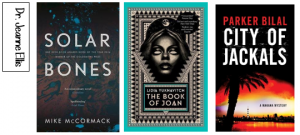
Dr Jeanne Ellis
Mike McCormack, Solar Bones (Tramp Press, 2016)
Lidia Yuknavitch, The Book of Joan (Harper, 2017)
Parker Bilal, City of Jackals (Bloomsbury, 2016)
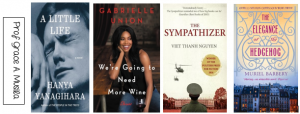
Prof Grace A. Musila
A Little Life, Hanya Yanagihara (Pan Macmillan, 2016)
We’re Going to Need More Wine, Gabrielle Union (HarperCollins, 2017)
The Sympathizer, Viet Thanh Nguyen (Grove Atlantic, 2015)
The Elegance of the Hedgehog, Muriel Barbery (Editions Gallimard, 2006)
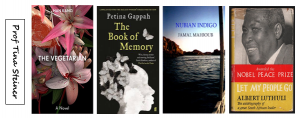
Prof Tina Steiner
The Vegetarian, Han Kang (Portobello Books, 2015)
The Book of Memory, Petina Gappah (Faber & Faber, 2015)
Nubian Indigo, Jamal Mahjoub (Actes Sud, 2006, English translation 2012)
Let My People Go, Albert Luthuli (Tafelberg, 2001)
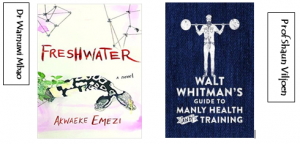 Dr Wamuwi Mbao
Dr Wamuwi Mbao
Akwaeke Emezi, Freshwater (Grove Atlantic, 2018)
Prof Shaun Viljoen
Walt Whitman’s Guide to Manly Health and Training , Illustrated by Matthew Allen (Pan Macmillan, 2017)
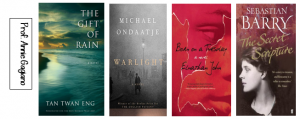
Prof. Annie Gagiano
The Gift of Rain, Tan Twan Eng (Myrmidon Books, 2007)
Warlight, Michael Ondaatje (Penguin, 2018)
Born on a Tuesday, Elnathan John (Grove Atlantic, 2015)
The Secret Scripture, Sebastian Barry (Faber and Faber, 2008)

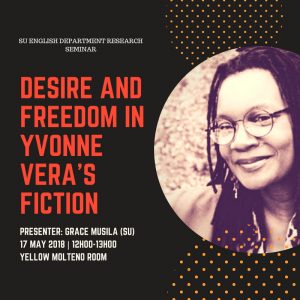
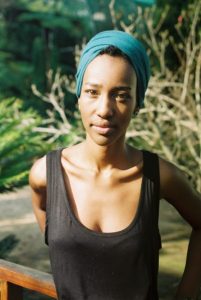 Loud and Yellow Laughter (Botsotso, 2016) by Sindiswa Busuku-Mathese has won the 2018 Ingrid Jonker Prize, which is given in alternate years to the best debut poetry collection in English, or Afrikaans. (The poet is completing her PhD in the English Department at Stellenbosch University, on a Graduate School doctoral scholarship.)
Loud and Yellow Laughter (Botsotso, 2016) by Sindiswa Busuku-Mathese has won the 2018 Ingrid Jonker Prize, which is given in alternate years to the best debut poetry collection in English, or Afrikaans. (The poet is completing her PhD in the English Department at Stellenbosch University, on a Graduate School doctoral scholarship.)